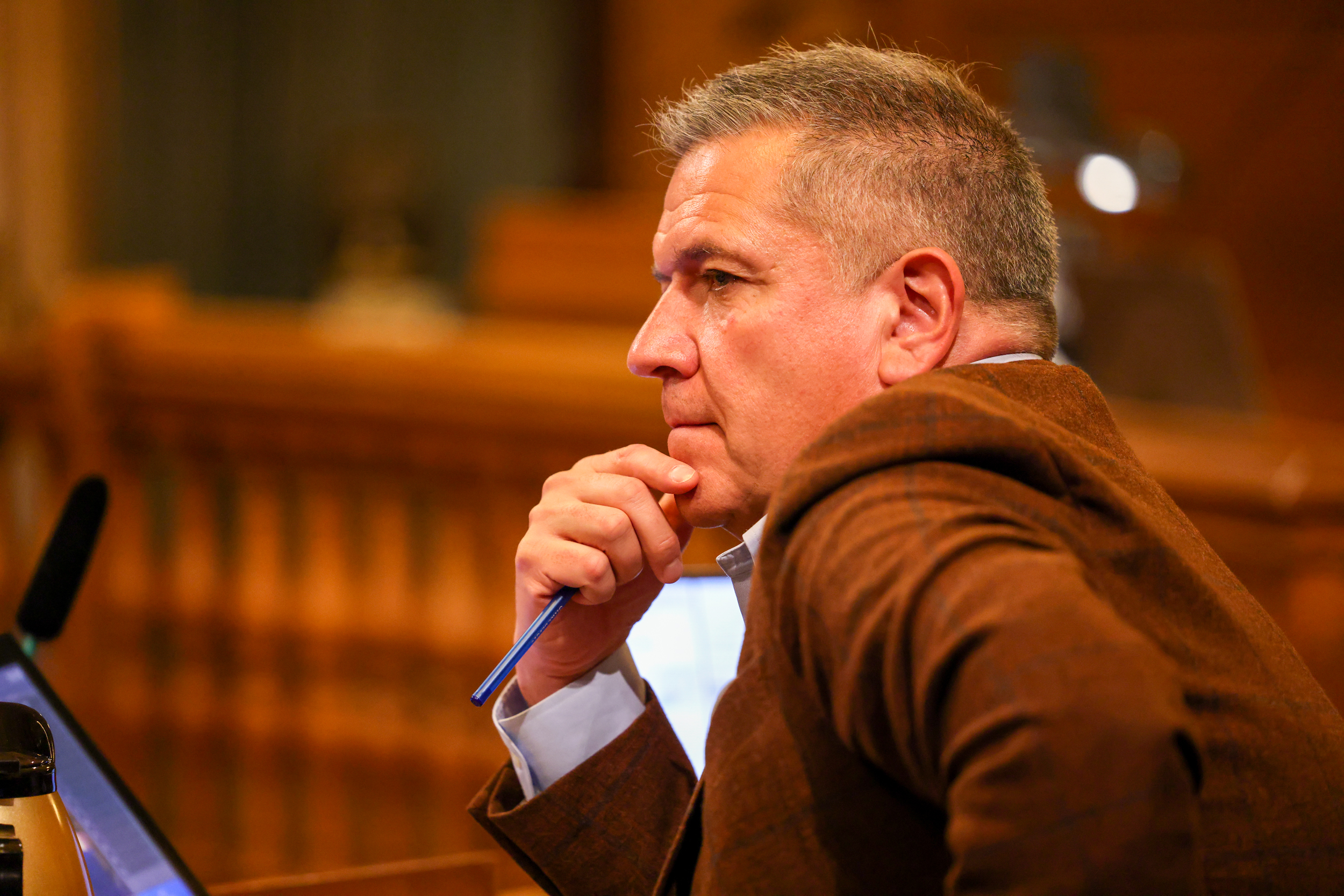San Francisco lawmakers voted to place a measure on the March 2024 ballot that promises to increase staffing levels for police—but would likely require new tax revenues.
The measure, which passed by a 6-5 vote at the Board of Supervisors, took a divisive path to approval, having changed against the wishes of its original supporters, including Mayor London Breed.
Supervisor Matt Dorsey, who originally introduced the measure, wound up voting against it. So did Supervisors Joel Engardio, Rafael Mandelman, Dean Preston and Hillary Ronen. Supervisors Connie Chan, Catherine Stefani, Myrna Melgar, Shamann Walton, Ahsha Safaí, and Board President Aaron Peskin voted to support.
In a series of heated committee meetings, Safaí pushed for amendments that tied the staffing mandate to new tax revenues. Safaí argued that any hiring mandate should come with a new funding source as representatives of civil service unions showed up in droves to argue that hiring mandates should apply to 911 operators, paramedics and other job categories instead of only cops.
“We are down sheriffs, we are down paramedics, we are down mental health technicians, we are down firefighters and, yes, we are down police officers. So if we are going to have a conversation about public safety in this city, we need to talk about all aspects of public safety that include all of the people who are on the front lines,” Safaí told colleagues.
Safaí’s move came with the backing of organized labor, who campaigned for the measure under the banner of “Safer Smarter SF.” In a statement issued before Tuesday’s meeting, the group suggested the initiative could be funded from “corporate taxes.”
“We need a fiscally responsible plan to get more cops on San Francisco streets,” said Supervisor Catherine Stefani in the campaign statement. “I will support any measure that increases police staffing and allows San Francisco to hire more police officers without forcing layoffs of firefighters, nurses, 911 dispatchers and other public safety workers to pay for it.”
Engardio, meanwhile, deemed the amended measure as being “merely aspirational.”
“It is not a new dedicated tax. It refers to the possibility of using an unnamed tax in the future to pay for more police, and that raises some legal concerns,” Engardio said, adding that it was “messy, and it doesn’t do anything to immediately fund and hire police. We need to scrap this measure and start over.”
Ronen said she was opposed for different reasons.
“This is the worst-written piece of legislation I think I’ve seen in my 15 years on this board. We are tying our hands in the future,” she said, “unless we specifically want to raise revenue to hire police, no matter what’s happening, no matter if there’s a pandemic, no matter if the homeless crisis gets worse, no matter if there is a staffing crisis in any other profession.”
“This is now not a police staffing measure,” Dorsey said. “It will not take effect unless quote, ‘a future tax measure passed by the voters unquote is determined to generate sufficient revenue,’ the notion that San Franciscans can only expect a fully staffed police department if they’re willing to pay extra for it.”
“The mayor has been clear that we should not be tying police staffing to raising taxes,” a spokesperson for Breed’s office told The Standard. “It’s bad policy and wrong to ask voters to pay more in taxes for basic city services like public safety.”
